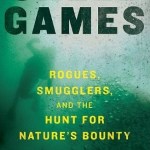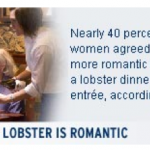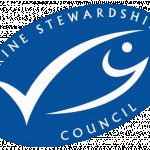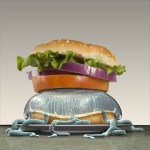Seafood
This is the eleventh of 16 student posts, guest-authored by Ilze Berzins.
When one hears the words “food-borne illness”, what comes to mind? For me, I think of a medium rare, pink, juicy hamburger, or something like potato salad that may be made with mayonnaise containing raw eggs, or maybe a fresh green garden salad sprinkled with sprouts. I am sure we have all heard about outbreaks or recalls surrounding these familiar dishes. And the usual suspects contaminating these food stuffs are often bacteria with familiar names such as E.coli or Salmonella. …
by Elizabeth Grossman
"After three long months of oil geysering continuously from the depths of the Gulf, a temporary cap has stemmed the flow and it appears that the well is on its way to being killed. But we are by no means through this disaster," said Senator Sheldon Whitehouse (D-RI) in his opening remarks at the August 4th Senate Environment and Public Works Committee hearing on the use of oil dispersants in the BP/Deepwater Horizon oil spill.
Gulf Coast fishermen and others whose livelihoods depend on the Gulf of Mexico's sea life know this all too well.
While the scientists testifying…
By Elizabeth Grossman
In mid-June most of the seafood shacks along the bayou roads between New Orleans and Grand Isle were closed. A seafood market that I stopped by on the western edge of New Orleans was virtually devoid of customers despite bins brimming with bright blue crab and tawny shrimp. Business was so slim that two women who should have been tending to customers were playing Yahtzee. "We've never done this on a workday before," they told me. Another woman unloading sacks of shrimp frowned at my notepad and said, "I blame the media. We've got plenty of shrimp and it's safe." She…
It takes only one rogue in a million to wipe out a geoduck population, which becomes obvious in Craig Welch's newest book Shell Games. The illegal geoduck trade in the Puget Sound and the wildlife officers who track them make for an action packed story that brings the otherwise humble shellfish into rank with the excitement, profitability, and danger of drugs or arms dealings. Wildlife poaching and the markets that fuel it provide for a tale of action and tale of woe. The book is ripe for a screenplay (recall Adaptation, Charlie Kaufman's film about The Orchid Thief) but, until then, read…
The UN has rejected the proposal that Atlantic bluefin tuna be listed by the Convention on International Trade in Endangered Species, or CITES, which is currently in session.
CITES regulates the international trade of threatened species. All imports, exports and re-exports of species included in CITES must be authorized by a licensing system that is administered by the individual parties of the convention.
Japan, which imports 80 percent of Atlantic bluefin and has led the opposition to the ban, reiterated its arguments that CITES should have no role in regulating tuna and other marine…
Bluewashing. It's everywhere. In his article Beware of 'bluewash': Which fish should you buy? Nic Fleming covered our research on confusing seafood eco-labels in this week's NewScientist.
In addition to the dangers of seeming eco-friendly, consumers are also up against an industry very set on convincing consumers seafood is healthy. Earlier this week, Dr. Melina Jampolis, the CNN diet and fitness expert, got the question: Is farm-raised salmon as healthy as wild? She consulted a senior vice president for research of the Environmental Working Group, who said:
Eating farmed salmon…
Need a New Year's resolution? Consider signing this seafood boycott.
It's that time of year where we welcome changes and commitment to ideals. New gym memberships. Re-committing to flossing every day. Giving up seafood...
My New Year's resolution was to finally write this blogpost compile a list of people that will boycott seafood (all farmed and wild caught marine and freshwater animals) for 2010 to:
1.demonstrate serious admonition for current fisheries practices (on the whole; we know there are a few localized examples of good management);
2.demonstrate strong support for seafood…
My former supervisor/now boss (and OG of overfishing) has a piece out in The New Republic with the wonderfully garish title of Aquacalypse Now. He explains how the fishing industry can contribute a minuscule amount to the GDP of advanced economies -- less than hair salons -- and yet manage to wield a disproportionate amount of political power. Read the whole article here but beware: NOTHING is as bad as harpooning a manatee.
A lot of people who don't want to feel guilty about eating seafood will look for the MSC logo. The MSC (or Marine Stewardship Council) supposedly certifies sustainable fisheries. They aim to reward good fisheries management by providing access to niche markets (the same markets concerned with their bread slicers) and the lure of higher profits (although this hasn't seemed to happen so far). Four recent events reveal the fishiness of MSC-certification -- a process many fisheries scientists supported at its inception but now doubt.
1) Certified wasted fish
Daniel Pauly and I have an article…
"Shrinking fish size at Tsukiji sign of trouble; Japan rethinking need for fish management at home" -- this is the headline of a recent article at seafood.com. Tsukiji is the world's largest fish market. Located in Tokyo, Japan, it spans 43 football fields and feeds the nation's seafood demand (you can see Tsukijii in the 60-Minute coverage of the tuna crisis made last year). Since most of us cannot access the article, I wanted to point out a paragraph that shows the trend of seafood with all the clairvoyance (but none of the skepticism) of a crystal ball:
Yet if you look closely, Tsukiji…
We like tension. It makes for good stories. But it has been recognized that the fair and balanced approach to science news (and otherwise) can be detrimental. As Al Gore pointed out in An Inconvenient Truth, climate scientists, as represented by their peer-reviewed literature, hold a consensus view on the carbon crisis while the media continues to report skepticism.
Last week, an article was published in Science on Rebuilding Global Fisheries. The paper worked to reconcile views of marine ecologist Boris Worm and fisheries scientist Ray Hilborn (which Cornelia Dean at the New York Times…
When Daniel Pauly first began talking about jellyfish burgers, he did so as an absurd metaphor. I blogged about it and, with the help of Sherman Lai, made this rudimentary burger:
Then, we upped the jellyfish burger ante when digital artist Dave Beck and I made this fancier version:
Meanwhile, jellyfish are on the rise everywhere and this summer the jumbo Nomura jellyfish are likely to again invade Japan.
And, on the flip side, jellyfish are now being made into all sorts of things, including, most recently, burgers. This Japanese website, translated by a friend who reads Japanese, is…
The End of the Line, a documentary on global overfishing sparked by Charles Clover's book by the same title, has sparked many public conversations about global overfishing.
The latest discussion takes place today at SEED magazine, where several fisheries experts (many of them make appearances in the film) gave their impressions of the problem. I also provided a few recommendations: deal with pigs and chickens, eat local and leave seafood for survival, consider a seafood boycott, and agitate vertically rather than laterally.
As a way of counteracting some of the work by Environmental Working Group, the Sea Turtle Restoration Project, and Oceana to inform consumers about the health risks of consuming too much seafood, a new website was just launched called HowMuchFish.com, which tells you how much mercury-laden tuna, salmon, and shrimp you can 'safely' consume.
Although it might not be obvious at first glance, HowMuchFish.com is sponsored by the Center for Consumer Freedom -- "a nonprofit coalition of restaurants, food companies, and consumers working together to promote personal responsibility". Check out their…
Not to beat a dead horse (although that horse could possibly help alleviate the demand for tuna) but I wanted to clarify some of the arguments against eating seafood or, rather, in favor of marine life. Here I address some specific (and broader) questions in response to my recent posts.
Isn't there sustainably harvested seafood out there we can eat?
In theory, we should be able to harvest seafood sustainably. I am not ruling out this possibility, although most scientists are very hard pressed to name several truly sustainably managed fisheries (note on the rule of sustainability: things…
As Mark Powell (of the Ocean Conservancy) pointed out in the comments of the last post, Roger Rufe of the Ocean Conservancy said that we need to "use ocean wilderness to lead a new way of thinking about and seeing our oceans through a positive conservation lens, rather than an extractive one." And also that "we must shift our focus from the oceans as fish warehouses and dumpsites and focus on them as natural ocean communities to be cherished and protected."
Agreed.
But this campaign disappeared and, according to Mark Powell, it was because people weren't ready for it. He rightly believes we…
A Guilt Trip for Obama
I sent a million emails
Cheering you on in every line.
I watched Will.I.Am's video
About a thousand times.
I stood strong against my parents
(Both McCain supporters).
I recruited my brother:
A first time and Obama voter.
I made inspirational cds,
Sending them to friends in every state.
I bought an Obama-sized cutout
And motored him 'cross the U.S.A.--
He was kicked out in Florida,
Photo-opped in Tennessee,
And adored by all in L.A.
Knowing you were a champ,
I customized a YES WE CAN stamp.
I posted on YouTube,
I read your news every day,
I wrote many rants,
I hoped and…
tags: seafood, fisheries, aquaculture, fish farming, tuna, swordfish, salmon, shrimp, sushi, book review
There's plenty of fish in the sea, as the old addage goes -- but are there, really? I experienced a rude awakening at the peak popularity of Orange Roughy, which I loved. I learned that Orange Roughy, Hoplostethus atlanticus, an extremely long-lived benthic species in the Western Pacific Ocean that doesn't even reach sexual maturity until 40 years of age, was being eaten out of existence by people like me. After I learned that, I never touched Orange Roughy again. But after I discovered…
Even though I mostly eat food provided by the local food bank and food pantry, I actually purchase food for my parrots (alas, food banks/pantries don't provide pet foods). So I went shopping today at my local 99 cent store (which should be renamed the local $2.50 store) looking for frozen fruits and vegetables for my birds but instead, found a real treat for me: canned Jack Mackerel and canned Sardines, and frozen Alaskan Pollock fillets and frozen Tilapia fillets. Being a seafood lover who has not had the pleasure of eating seafood in a long, long, long time, I couldn't resist the promise of…
The mislabeling and renaming of fish is a problem. It means that consumers are often paying more than they should for their seafood. Plus, it impedes the consumer's ability to make environmentally or health conscious choices.
I also really like the twin problems of renaming and mislabeling because they are unconventional sources of signs of overfishing. Fish species are given new names because their original name is unappetizing--a reminder that no one thought those fish would be eaten. Read more on renaming in my latest piece Tried the Slimehead? Delicious at The Tyee.




